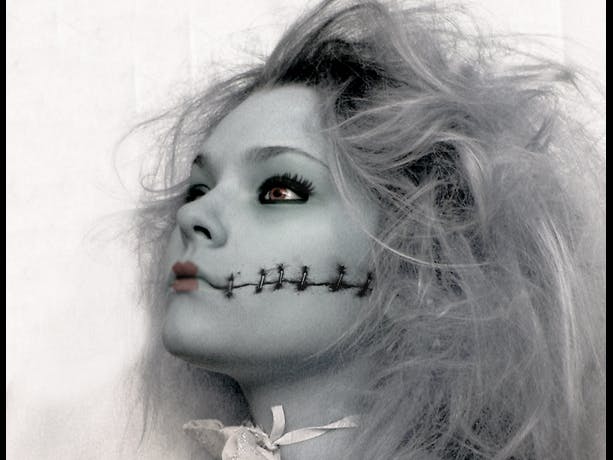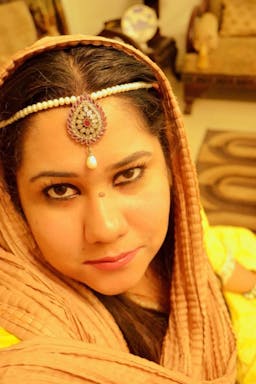False Obedience to Injustice
Jan 21, 2015
Story


As I waited anxiously for Khadija Ali, a passionate young woman I met when I attended a women’s empowerment training program, I started to recall her great debates on women’s rights and empowerment. I will never forget her words.
Ms. Ali was born in 1988, in a small traditional house located in Rawalpindi, Pakistan. She is now a high court advocate and lecturer of constitutional law. She also serves as President of Tabeer (striving to turn dreams into reality), a non-profit organization. She is a self-made woman who received scholarships and stipends to continue her education after secondary school. Today, she is a proud daughter and sister, and above all, a vigorous and unbeatable woman. She opened her eyes in a family where the norms of society and culture were the only principles. The urge to question injustice and patriarchy made her rebel and try to overturn the cart. Fearless of the consequences, she began to dream as a child and specified her goals.
On the question of the challenges faced by women in Pakistan, Ms. Ali said,
“Mostly, girls are brought up in a manner that they feel satisfaction in their life. They are being told to obey blindly. They could hardly feel human emotions and they live their whole lives like wax statues.” Ms. Ali was ordered to do the same, but she raised her aims and grew into a woman who will not be ignored.
“I’m Khadija Ali! Period! I’m a daughter and a sister, but above all I’m a human. I’m my father’s daughter but I’m no one’s honor, I have my own identity and my own shadow.”
She is a believer of rights for all and a complete opponent of Talibanization which strict regulation of women to get educated or work. One of her dream is to destroy this concept which is not only used by Talibans but other people as well who wants to suppress the power of womanhood. “Talibans are using name of our religion and portraying wrong image of Islam in order to benefits their pockets and dreams which will soon end into broken pieces of misery”.
She particularly mentioned that blind obedience to elders it is increasing terrorism rapidly. The torture given to the children in schools and houses has resulted into the emergence of extreme violence especially in Pakistan. Not only this, the wrong concept of attaching terrorism with Islam should also be corrected; it is moreover a game of economics, politics and throne. “For me as a lawyer, one of the greatest reasons why terrorism is increasing in Pakistan is because we have not distinguished between personal and public lives.”
According to Ms. Ali, the advocacy of religious beliefs through the medium of State is completely illogical. Both are completely different. Why people are forced to follow the instructions of State about their religion, which is completely their own personal choice. State should not dictate people about their religion and rituals.
“Why should I be told to cover or uncover my head because the State says so?”
Ms. Ali became a lawyer to get the answer for injustice she experienced not only in her house but in the system and laws. For example, before studying law, she could never have the logical arguments about a 1979 law known as Hudood Ordinance which does not differentiate between rape and fornication. Once she became a lawyer, she understood the law and saw it was unjust. After a hard struggle by civil society, the law was corrected in 2006. Now it differentiates between rape and fornication.
Ms. Ali also offered the view that terrorism and extremism increase when people cannot obtain justice. The constitution of Pakistan prohibits any law contrary to Islamic law. This is giving birth to a lot of problems. For example, religious minorities such as the Hindus in Pakistan cannot register their marriages. The photographs and guests of the wedding act as evidence and witnesses.
Ms. Ali has also been presenting pro bono cases against sexual harassment on behalf of women. One of her most difficult cases was advocating for a widowed, 50-year-old woman. Ms. Ali said that the woman was so depressed and suffering such mental torture that she could hardly share what happened to her. The woman told Ms Ali that she had been sexually harassed by a sub ordinate in her department. She fought against the stereotype that only young, pretty women are the targets of sexual harassment. And she showed that sexual harassment does not have to involve physical contact. The man was behaving inappropriately without physically touching her and it was going into his favor. Ms. Ali’s work was successful. The offender wrote an apology. Afterwards many companies changed their policies to give more protection to their employees.
On domestic violence, Ms. Ali said, “In 2012 a domestic violence bill was presented in the Parliament. Opponents of the bill said that domestic violence is a personal matter which should be free from the interference of law.” Ninety percent of Pakistani women do not agree with this view, but sadly they are not sitting in parliament. Ms. Ali said that while demonstration to have this law passed the leader of right wing Fazul ur Rehman pointed the civil society in visiting gallery and said; “Having this law passed is an agenda of these NGO’s funded by Jews and America to corrupt our society”. Ms. Ali and other women’s right activist protested outside the parliament but had to leave soon because of security concerns.
Born in a conservative family, raised in the fire of her dreams, today Ms. Ali has become the voice of women who are silenced. Her journey to bring justice to humanity has not stopped yet. She has a long way to go. Before learning advocacy she was falsely obeying to injustice but now she is obeying her principles. She said;
“I will spend my life fighting for the principles I believe in.”
These are freedom, education and equality for all.
This article is part of a writing assignment for Voices of Our Future a program of World Pulse that provides rigorous digital media and citizen journalism training for grassroots women leaders. World Pulse lifts and unites the voices of women from some of the most unheard regions of the world.




